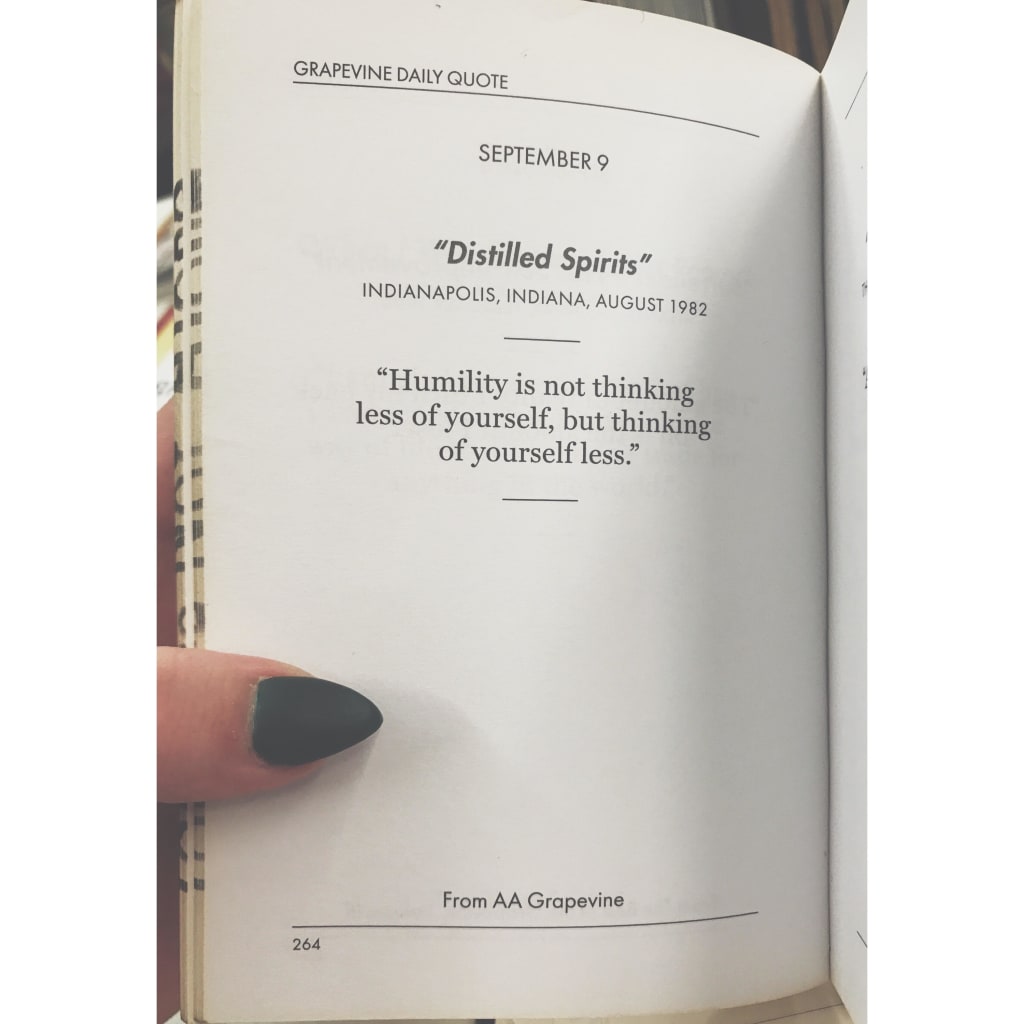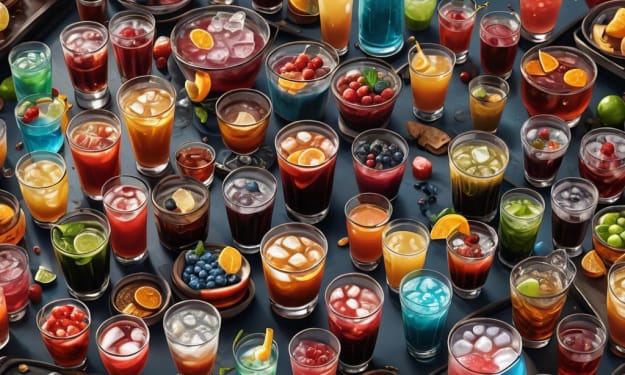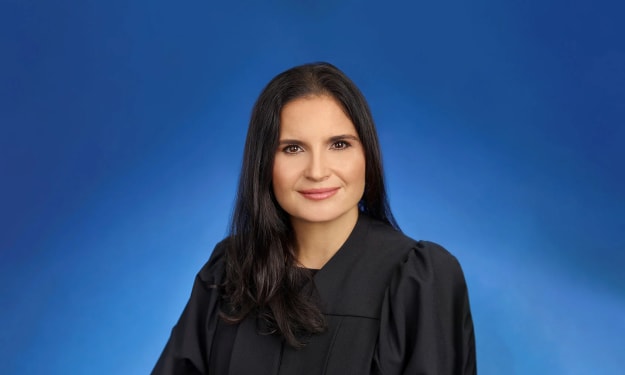Young Alcoholism
How to Recognize the Problem Before it Destroys You

I never thought I would call myself an alcoholic—especially not at 23. I figured I was just doing what everyone else was doing...having fun! But a few instances of my head in a toilet bowl and not remembering how much money I spent the night before got me thinking...maybe I wasn't doing this the way I was supposed to.
Flash forward to July of 2017 when I commenced a full-on mental breakdown and found myself checking into a psychiatric facility for suicidal ideation. If you've never gone through inpatient care, let me tell you something: hospitals will do everything in their power to get you in a program that doesn't require you to stay the night with them. During my intake process, I noticed that the nurse kept lingering on how often and how much I said I drink. She would ask, "How many drinks a day?" and I would say, casually, "On my work days, none, but on my days off, anywhere from 5-15, depending on what I'm drinking." For some reason she looked at me like I was saying something weird, but to me, 5-15 drinks seemed like a small estimate. She then asked, "How many days a week do you drink?" I, again, answered casually. "I work four days a week with three days off. I don't drink on my work days, but the three days I'm off, I'm drunk." She blinked. "All three days?" Again, I'm casual. "Yep."
This is when it all started for me. The nurse finished my intake assessment and gave me a green wristband. I went up to my room and woke up the next day scared as hell but feeling OK. I went outside for the smoke break after breakfast, and a guy who also had a green band on asked me, "So, what are you detoxing off of?" I just looked at him confused and slightly offended, like...does this dude think I look like a meth-head or something? He added, "The green band means you're detoxing." I just sat in silence and I began to get angry. "This nurse thought I had an alcohol problem?! Has she ever MET another 23 year old? I'm here for wanting to kill myself, my drinking has nothing to do with that!" When I went inside I immediately called my mom. She was quiet on the other end and said to me, "Sara, when you drink, you can't have just one. You don't know how to stop. You cannot drink casually. Maybe there's a reason you're in a dual-diagnosis program." I felt like I'd just had a brick thrown in my face, but she was right. I didn't understand how people in my life could drink casually. What's the point of one drink when I could have twelve? Why wouldn't I drink until I'm drunk? Drinking is there for me to get loose and feel better, not to sip on some sock-water (beer) just for the hell of it. I didn't like the taste of alcohol, but I sure did love the effect. Suddenly, I was faced with a problem I never thought I'd have to deal with: alcoholism in my early 20s.
I grew up with an alcoholic father and sister, one of which died and the other (my sister) has been in and out of Alcoholics Anonymous for a few years. I have seen how drinking can ruin lives, yet when I thought of an alcoholic, I still pictured a homeless man under the bridge with a brown paper bag wrapped around a 40 oz. I, with a job and car and family, could never be an alcoholic! I'm functioning! Turns out, functioning alcoholism isn't really a thing. Despite all the good I had in my life, my dependence on alcohol was affecting me in a negative way that I couldn't see because I was clouded during those periods of time. I thought that because I didn't drink every day, or in the morning, I wasn't an alcoholic. But I learned that alcoholism comes in many shapes and sizes, and that I was one of them. I also learned that that is OK.
I've never been one for structure. When I was recommended Alcoholics Anonymous, I thought it was a bunch of crap. It sounded a bit like a cult, actually. There were steps, I had to pray, there were rules, etc. But I went to a meeting after I left the hospital anyway because I was shaking from detoxing and I was afraid to drink again. I was scared that if I took another drink I would wind up killing myself for real. So, I sucked it up and went to a hall my sister had been to before. When I tell you that my life changed, I'm not kidding. I was sitting around a table full of people from all walks of life. People who fit the "typical" description of the alcoholic, and people, like me, who didn't drink everyday, or in the morning, or at work, but still found that our dependence on the drink hurt us and never left us happy or with the hole in our hearts filled. I heard around the tables that AA is based on attraction rather than promotion. I was told that the only requirement for membership was a desire to stop drinking, and I was told that if I keep coming back, it works. So I did. For the first 30 days I went to a meeting, every single day, and sometimes two times a day. I would listen to people with 20 years of sobriety talk about the lowest they've ever been and how their entire lives changed after getting to a hall, finding a sponsor, and trusting in their higher power. But the one thing I heard the most was, "I wish I'd done this sooner."
Being in your early 20s and realizing you have a problem that will be with you forever and greatly impact your social life, friendships, and relationships does not bring an excitement for immediate change. I thought that maybe I could wait to deal with this alcoholism thing until I got the chance to get it all out of my system and have some more "fun." But then I heard around the tables at meetings about the DUIs piling up, car accidents, divorces, family strife, decline in health, liver failure, loss of jobs, being homeless, and so many more painful stories from members in their 40s, 50s, and 60s. I would talk in meetings about how I'd never experienced a really bad legal or health ramification during my drinking and those at the meeting would say, "you're lucky." If I were to choose to continue drinking, I would have consequences. I cannot drink like "normal" people. Alcoholism is a sickness, and just like any other sickness, I need to do all I can to get better, not destroy myself further.
One thing you have to realize is that alcoholics surround themselves with other alcoholics. When I would go out partying, I brought my "fun" friends, the ones who could keep up with me, drink all night long, and enjoy the party. These friends of mine are also the first ones I lost when I stopped drinking. My choice to be sober no longer fit their lifestyle, and when I was still drinking I had also done this to past friends of my own. Because I was constantly surrounded by other people who drank as much as I did (or more), I never recognized my choices as problematic. Now that I look back, I realize that those moments of near-blackout drunken messes aren't funny. The way I acted wasn't cute, but instead hurtful and embarrassing.
There is no shame in admitting you have a problem. I was ashamed at the idea of having a label like "alcoholic" on me. I felt like I was below everyone in my life, but the case really is that I'm just different. It's similar to an allergy. Some people are allergic to cats and others aren't. I am allergic to alcohol, and it only makes sense that I then stay away from it instead of sticking my face in it. In order to live a better life, I have to hold myself accountable. AA helps me do that. The fellowship of Alcoholics Anonymous brings together people from all walks of life who understand you, and just want to share their own experience, strength, and hope with you so that you can also carry the message. And guess what? Everything you read and hear in AA is a suggestion for recovery. No one will tell you how to live your life, but instead set down guides to progress. Your higher power is your own, the way you do your steps is your own, and how well you maintain your sobriety is your own.
Do you feel like you may have a problem with alcohol? Do you have a desire to stop drinking? If so, consider checking out an AA hall.
"AA is not allied with any sect, denomination, politics, organization, or institution; does not wish to engage in any controversy; neither endorses nor opposes any causes. Our primary purpose is to stay sober and to help other alcoholics achieve sobriety."
About the Creator
Sara Johnson
Sociology major with a lot to say and even more to learn.






Comments
There are no comments for this story
Be the first to respond and start the conversation.